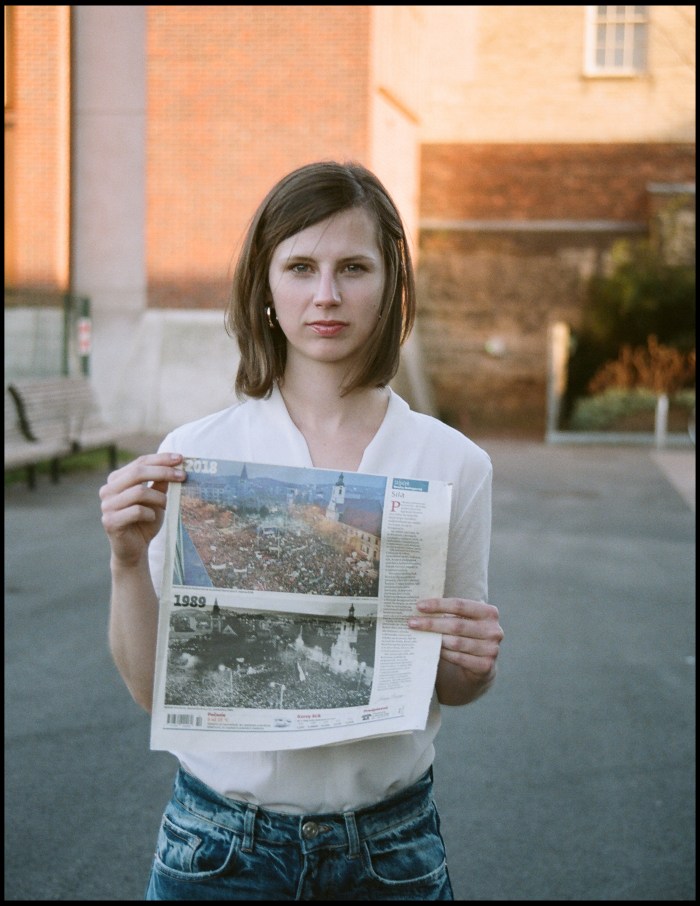“While Away” – my photographic project portraying MPP students and their stories

Before coming to Oxford I trained as
a social anthropologist. I was drawn to that discipline because of my general
interest in people and their stories. As a researcher, I developed some
photographic skills and tried to use photography not only as a way of
illustrating a story, but as a mean of understanding different contexts.
When I arrived in Oxford for the Master of Public Policy (MPP), I started photographing using film again, especially for the unique visuals that particular types of film offer. In contrast to digital photography, film demands you to slow down and really think about what you want to convey with each picture. I got a couple of old film cameras and started taking some portraits.
At first, I was surprised to see so much diversity in the MPP class. Of course, I expected to meet people from all around the world, and the MPP is known for having one of the most international groups in the University. This year alone there are almost 50 different nationalities in my class, each person with a very interesting story to tell.
Oxford is a unique city. For
centuries, people have come here for the prestigious university, and then went
back to their own lives afterwards. This is also true for us MPP students, we
are just passing through in a moment of our lives. When summer is over we will head
back to our countries or future projects.
The title ‘While Away’ is a reference
to that transitory moment – a year – which we spend in Oxford and to the
memories of home we all carry.
Being foreigners means that we bring our memories and stories with us. Sometimes these are connected to specific objects, such as attires, a picture, or a piece of jewellery. These connections to our origins help us deal with difficult moments that are inevitable during the year. We often find comfort in the familiar, and even abroad we carry something that links us to our home.
So, when I approached my colleagues
for the pictures I asked them to bring something that reminded them of their
origins and home. I tried to keep the concept as broad as possible, for some fellow
MPP students do not have a single country or nation of origin, but many.
When I decided to start this project I
thought about photographing my friends in the rooms where they live in Oxford.
My idea was that each one of us shapes that environment as close as possible to
what they see as ‘home’. But I also thought this might be too invasive. So, I
realised that what I wanted to show in the photos was how students dealt with
the feeling of being away from home. So, the physical space did not matter as
much as their stories and what they considered reminders of their homes.
At first, it was a bit challenging to convince people to join the project, but after the first pictures were posted, some colleagues approached me wanting their photo taken as well. I’m now in the middle of a roll of film and some classmates who are staying in Oxford throughout the summer would like to participate in the project.






Pedro Stoeckli Pires is currently studying for a Master of Public Policy at the Blavatnik School of Government. As a public servant and a social anthropologist, Pedro has been working with the Ministry of Social Development and Evaluation Department in Brazil.
More images from this project can be seen on his Instagram account.
